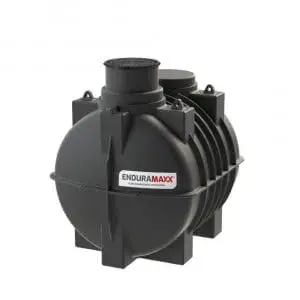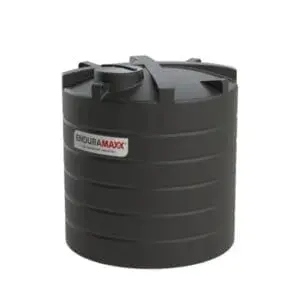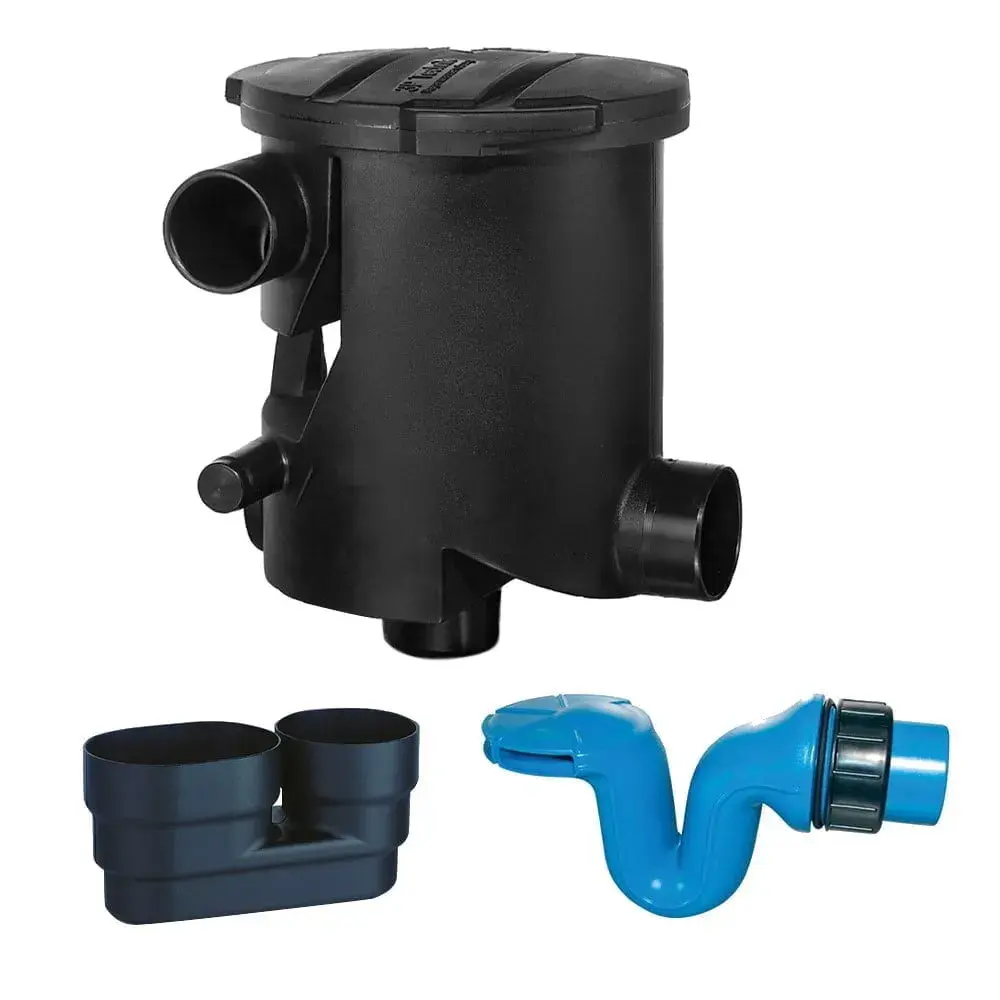The brewing industry is thirsty! It takes about 300 litres of water to make one litre of beer. Water is used in all stages in the production of beer, from growing the hops or barley, from brewing the beer, right up to bottling and transport to the pubs or shops.
So, water is a key concern to brewers. The quality of the water, the cost of the water and the ecological factors of water scarcity are all things to be taken into consideration. Even the disposal of the effluent has to be taken into account.
The quality of the water for brewing
The unique taste of the beverage will depend upon the water and where it has come from. Guineas take their water not from the local Liffey River but pipe it from the Wicklow mountains where the water has low mineral content.
Tap water is very expensive, and the mineral content could make the beer taste unpleasant, so it is an option only to be used as a last resort in brewing.
But wherever the beer is produced, the water will need some form of treatment. As an example, in Burton-on-Trent the water is hard and many local brewers boil the water to reduce this whereas, in Pilsen where the water is very soft, the brewers add salts to make the water harder.
Water hardness and brewing
It’s not just the taste that is affected by where the water comes from. Water-rich with calcium and magnesium is hard water and can significantly raise costs in terms of limescale furring up machinery. it can allow dissolved solids to accumulate in the boilers, where they can cause problems like foaming and limescale deposition.
Water scarcity
One in every seven people on Earth suffers from water shortages. In America, some breweries have been hard hit and lost markets and money when restrictions were put in place during periods of drought.
Brewers are looking to methods of recycling their wastewater, as a way to reduce costs and lower their environmental impact.
Where is the water used in brewing?
Although beer is 90-95% water, most of the water used is in the cleaning. It is also needed for cooling and bottling beer. A lot of water is lost through evaporation.
Growing plants need water
Even before the ingredients to make beer reach the brewery, they have used a great deal of water. Barley uses 15-17 inches of water for satisfactory growth and hops over 50 inches per year.
The technologies used to treat the water
The three main technologies used to treat water are:
- Reverse Osmosis
- Filtration
- Carbon filtration
Reverse Osmosis
A semi-permeable membrane is used to separate particles, including molecules and ions from water. A high-pressure pump forces the water through but traps the unwanted contaminants, thus purifying the water. The water content can then be adjusted to the specific requirement for that brand of beer.
Nanofiltration
The pore sizes in a nanofiltration membrane are only 1-10 nanometres (one nanometre equals one billionth of a metre (0.000000001 m). These are slightly larger than the pores in the semi-permeable membrane used in reverse osmosis. It removes calcium and magnesium to soften the water and can be used when reverse osmosis is not considered necessary.
Carbon filtration
Carbon filtration uses a bed of activated charcoal, which removes pollutants by chemical absorption. The same method can be used in industry to remove hydrogen sulphide from gas – and charcoal tablets are sold under such names as “Windaway” and it is an ingredient of cigarette filters.
Recycling of Wastewater through water treatment
Saving water through recycling can save the cost of buying more water. When brewers dispose of water, they have to comply with Environmental Agency effluent regulations. Brewery wastewater is high in volume and high in particulates. It must not be allowed to overwhelm the local sewage and water treatment plants.
So, breweries may need to treat the effluent before sending it on to municipal wastewater treatment centres, and many of the larger breweries are investing in wastewater treatment facilities.
Conical bulk tanks for storage of wastewater prior to treatment are used as equalisation tanks, dosing tanks for storage of coagulants and treatment of wastewater. The steeper conical tanks mean that they can be used as settlement tanks for wastewater.
What are brewers doing to lessen water demand?
With increased efficiency, some brewers have managed to halve their water-to-beer ratios. Rainwater harvesting and proper irrigation can make savings in the growing of the crops – and finding and controlling leaks can make huge savings. Installing water meters makes good sense even for small breweries.
Better equipment and tweaking the processes can increase efficiency. Closed-loop cooling systems where the water is recirculated to keep the temperatures correct and float valves to check on how full the vessel is can save water and money.
Enduramaxx tanks for brewing
Enduramaxx plastic conical tanks are perfect for ideal for brewing for use as conical fermenters. They come in a range of capacities and advantages include;
- Lower cost: on average, polyethene tanks potentially save breweries 80% compared to purchasing stainless steel tanks.
- Portability: polyethene tanks are significantly lighter than stainless steel, making it easier for craft breweries who need to move tanks to meet their plans to scale.
- Scalability: polyethene tanks are available in a wide range of sizes, from 150 litres to 30,000 litres. When it’s time to expand, you can easily order the size you need.
- Fast delivery: polyethene tanks can be produced and delivered within 3-4 weeks, compared to the months that many breweries have to wait for stainless steel tanks.
We can supply the fittings you need and frames to hold the tanks steady. We also have a huge range of tanks for water treatment and wastewater treatment. If you would like to contact us on 01778 562810 we will be happy to discuss your specific requirements.
Posts By Topics
- Blog (303)
- Chemical Storage Tanks (118)
- Chemical Dosing Tanks (114)
- Chemical Tanks (114)
- Water Tanks (58)
- Rainwater Harvesting Tanks (43)
- Vertical Rainwater Tanks (31)
- Vertical Storage Tanks (31)
- Cone Bottom Tanks (19)
- Conical Cone Tanks (18)
- Rainwater Harvesting (17)
- Water Bowsers (15)
- Horizontal Tanks (14)
- Potable Water Tanks (13)
- Farming (9)
- Case Studies (8)
- Industrial Storage Tanks (7)
- Liquid Fertilser Storage Tanks (6)
- WRAS Approved Potable Tanks (6)
- Wine and Beer Production (6)
- Horizontal Transport Tanks (5)
- Microbrewery (5)
- Rainwater (5)
- Category 5 Break Tanks (4)
- Cider Production (4)
- Mixer Tanks (4)
- Molasses Tanks (4)
- Polyethylene tanks (4)
- Rainwater Filter Kits (4)
- SPECIALIST & BESPOKE TANKS (4)
- Bunded Tanks (3)
- Slimline Tanks (3)
- WRAS Approved (3)
- Clarification Tanks (2)
- Crosslinked Polymer Tanks (XLPE) (2)
- Fertiliser Tanks (2)
- Sump Tanks (2)
- Tank Installation (2)
- Water Butt (2)
- underground water tanks (2)
- ACCESSORIES & FITTINGS (1)
- ATV & UTV SPRAYING UNITS (1)
- Above Ground Effluent Tanks (1)
- Bespoke Tank Frames (1)
- Category 5 Turret (1)
- Caustic Soda Tanks (1)
- Closed Top Bunded Tanks (1)
- Craft beer (1)
- Effluent Tanks (1)
- Enduramaxx (1)
- Ferric Chloride Tanks (1)
- Fire Safety Regulations (1)
- Fire Sprinkler Water Storage Tanks (1)
- Industrial Water Tank (1)
- Open Top Bunded Tanks (1)
- Open Top Cone Tanks (1)
- Open Top Vertical Tanks (1)
- Polyethylene Potable Water Tanks (1)
- Polyvinylidene Fluoride (PVDF) Tanks (1)
- Polyvinylidene Fluoride Tanks (PVDF) (1)
- Pressure Washers (1)
- Pro Series Spot Sprayers (1)
- RWH (1)
- Sodium Hydroxide Storage Tanks (1)
- Sprayer Fill-up Tanks (1)
- Uncategorised (1)
- liquid fertiliser tank (1)
Sign up to the newsletter
enduramaxx.marketing
Related Posts
Compost Tea Brewer Tanks
Just as it sounds, compost tea in simple terms is compost that is soaked in water which produces a...
Craft Brewery Growth in the UK - Enduramaxx Ltd
Craft brewery storage tanks – the popularity of craft beers throughout the United Kingdom has...
Blending & Mixing Tanks for Various Uses - Enduramaxx Ltd
Mixer tanks are used for mixing, blending, agitation for many applications including food and...
Related Products
From £1,080.00 inc. VAT
£900.00 exc. VAT
From £1,344.00 inc. VAT
£1,120.00 exc. VAT
From £768.00 inc. VAT
£640.00 exc. VAT
£480.00 inc. VAT
£400.00 exc. VAT





